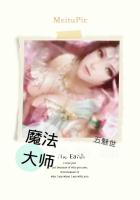And what is there pleasant in the memory of pleasure? What is it to recall yesterday's excellent dinner? Still more ridiculous, one of ten years ago.So, too, of last year's morality.
9.But is there not something to be said for the memory of the various forms of beauty?
That is the resource of a man whose life is without beauty in the present, so that, for lack of it now, he grasps at the memory of what has been.
10.But, it may be said, length of time produces an abundance of good actions missed by the man whose attainment of the happy state is recent- if indeed we can think at all of a state of happiness where good actions have been few.
Now to make multiplicity, whether in time or in action, essential to Happiness is to put it together by combining non-existents, represented by the past, with some one thing that actually is.This consideration it was that led us at the very beginning to place Happiness in the actually existent and on that basis to launch our enquiry as to whether the higher degree was determined by the longer time.It might be thought that the Happiness of longer date must surpass the shorter by virtue of the greater number of acts it included.
But, to begin with, men quite outside of the active life may attain the state of felicity, and not in a less but in a greater degree than men of affairs.
Secondly, the good does not derive from the act itself but from the inner disposition which prompts the noble conduct: the wise and good man in his very action harvests the good not by what he does but by what he is.
A wicked man no less than a Sage may save the country, and the good of the act is for all alike, no matter whose was the saving hand.
The contentment of the Sage does not hang upon such actions and events: it is his own inner habit that creates at once his felicity and whatever pleasure may accompany it.
To put Happiness in actions is to put it in things that are outside virtue and outside the Soul; for the Soul's expression is not in action but in wisdom, in a contemplative operation within itself; and this, this alone, is Happiness.
SIXTH TRACTATE.
BEAUTY.
1.Beauty addresses itself chiefly to sight; but there is a beauty for the hearing too, as in certain combinations of words and in all kinds of music, for melodies and cadences are beautiful; and minds that lift themselves above the realm of sense to a higher order are aware of beauty in the conduct of life, in actions, in character, in the pursuits of the intellect; and there is the beauty of the virtues.
What loftier beauty there may be, yet, our argument will bring to light.
What, then, is it that gives comeliness to material forms and draws the ear to the sweetness perceived in sounds, and what is the secret of the beauty there is in all that derives from Soul?
Is there some One Principle from which all take their grace, or is there a beauty peculiar to the embodied and another for the bodiless? Finally, one or many, what would such a Principle be?
Consider that some things, material shapes for instance, are gracious not by anything inherent but by something communicated, while others are lovely of themselves, as, for example, Virtue.
The same bodies appear sometimes beautiful, sometimes not; so that there is a good deal between being body and being beautiful.
What, then, is this something that shows itself in certain material forms? This is the natural beginning of our enquiry.
What is it that attracts the eyes of those to whom a beautiful object is presented, and calls them, lures them, towards it, and fills them with joy at the sight? If we possess ourselves of this, we have at once a standpoint for the wider survey.
Almost everyone declares that the symmetry of parts towards each other and towards a whole, with, besides, a certain charm of colour, constitutes the beauty recognized by the eye, that in visible things, as indeed in all else, universally, the beautiful thing is essentially symmetrical, patterned.
But think what this means.
Only a compound can be beautiful, never anything devoid of parts; and only a whole; the several parts will have beauty, not in themselves, but only as working together to give a comely total.Yet beauty in an aggregate demands beauty in details; it cannot be constructed out of ugliness; its law must run throughout.
All the loveliness of colour and even the light of the sun, being devoid of parts and so not beautiful by symmetry, must be ruled out of the realm of beauty.And how comes gold to be a beautiful thing? And lightning by night, and the stars, why are these so fair?
In sounds also the simple must be proscribed, though often in a whole noble composition each several tone is delicious in itself.
Again since the one face, constant in symmetry, appears sometimes fair and sometimes not, can we doubt that beauty is something more than symmetry, that symmetry itself owes its beauty to a remoter principle?
Turn to what is attractive in methods of life or in the expression of thought; are we to call in symmetry here? What symmetry is to be found in noble conduct, or excellent laws, in any form of mental pursuit?
What symmetry can there be in points of abstract thought?
The symmetry of being accordant with each other? But there may be accordance or entire identity where there is nothing but ugliness: the proposition that honesty is merely a generous artlessness chimes in the most perfect harmony with the proposition that morality means weakness of will; the accordance is complete.
Then again, all the virtues are a beauty of the soul, a beauty authentic beyond any of these others; but how does symmetry enter here? The soul, it is true, is not a simple unity, but still its virtue cannot have the symmetry of size or of number: what standard of measurement could preside over the compromise or the coalescence of the soul's faculties or purposes?
Finally, how by this theory would there be beauty in the Intellectual-Principle, essentially the solitary?















